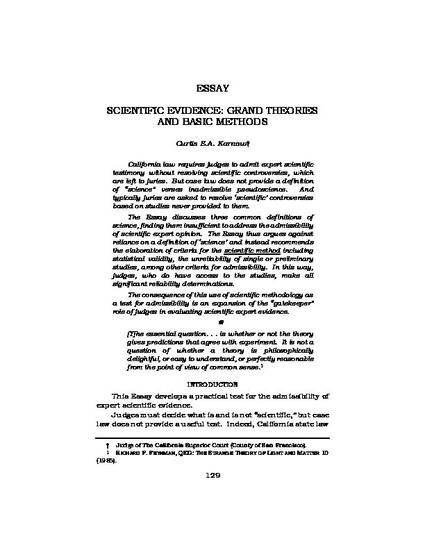
Article
Scientific Evidence: Grand Theories And Basic Methods
CORNELL LAW REVIEW (online)
(2022)
Abstract
California law requires judges to admit expert scientific testimony without resolving scientific controversies, which are left to juries. But case law does not provide a definition of “science” verses inadmissible pseudoscience. And typically juries are asked to resolve ‘scientific’ controversies based on studies never provided to them.
The Note discusses three common definitions of science, finding them insufficient to address the admissibility of scientific expert opinion. The Note thus argues against reliance on definition of ‘science’ and instead recommends the elaboration of criteria for the scientific method including statistical validity, the unreliability of single or preliminary studies, among other criteria for admissibility. In this way judges, who do have access to the studies, make all significant reliability determinations.
The consequence of this use of scientific methodology as a test for admissibility is an expansion of the “gatekeeper” role of judges in evaluating scientific expert evidence.
Keywords
- expert,
- science,
- scientific method,
- Daubert,
- Sargon
Disciplines
Publication Date
April, 2022
Citation Information
Curtis E.A. Karnow. "Scientific Evidence: Grand Theories And Basic Methods" CORNELL LAW REVIEW (online) Vol. 107 (2022) p. 129 Available at: http://works.bepress.com/curtis_karnow/53/